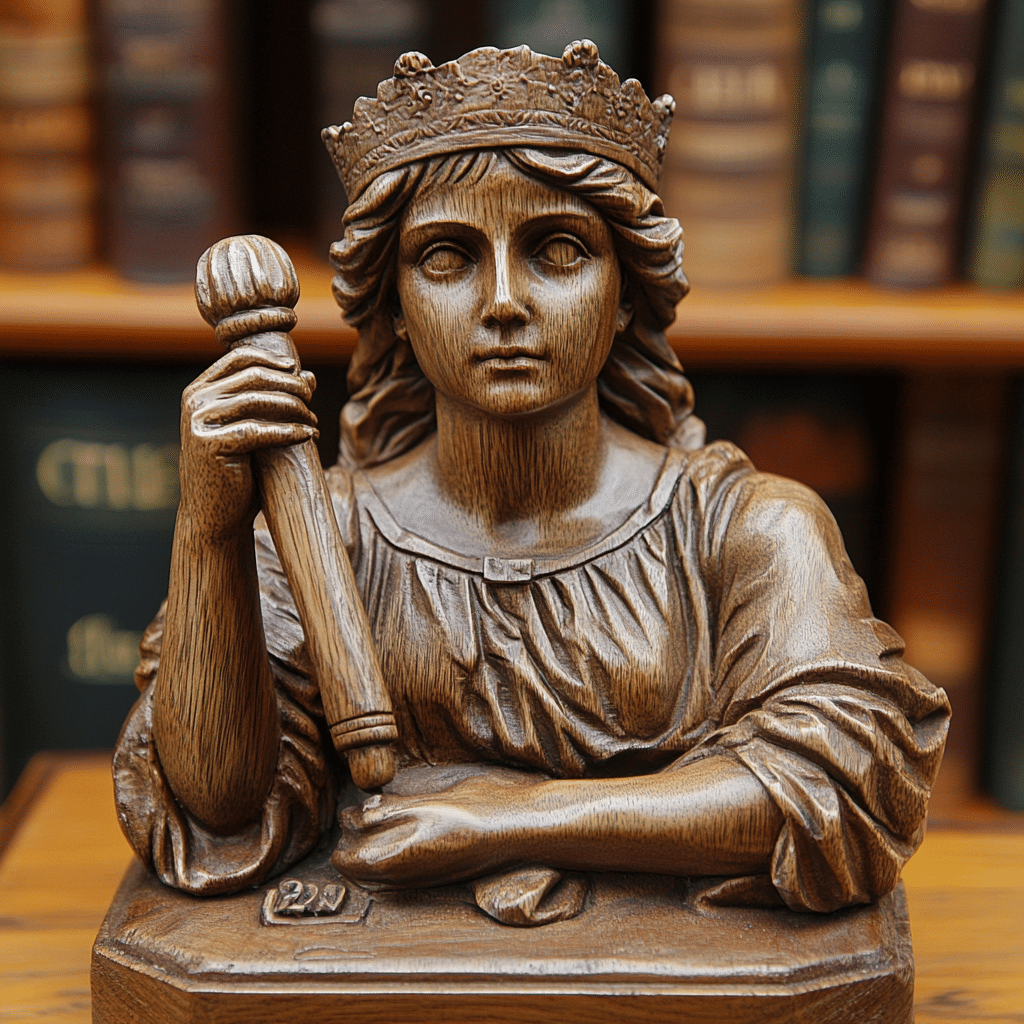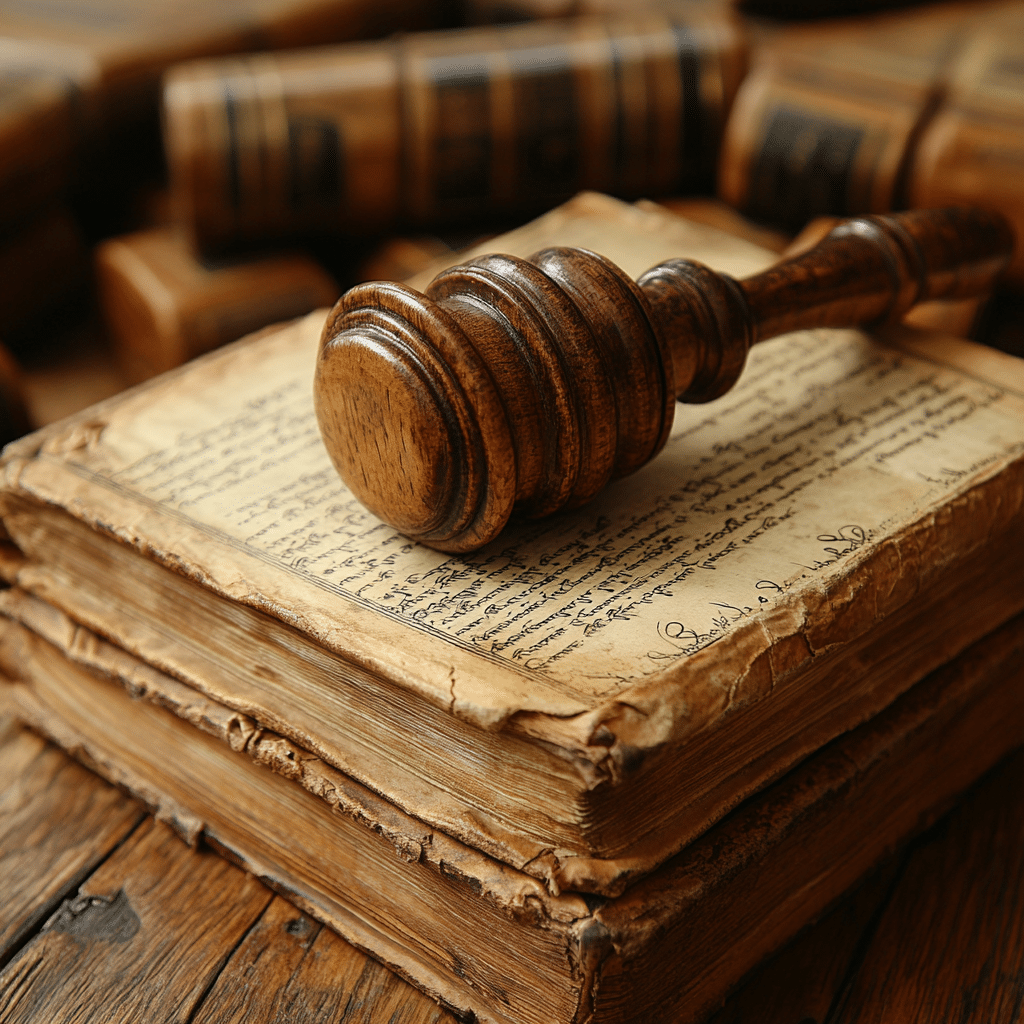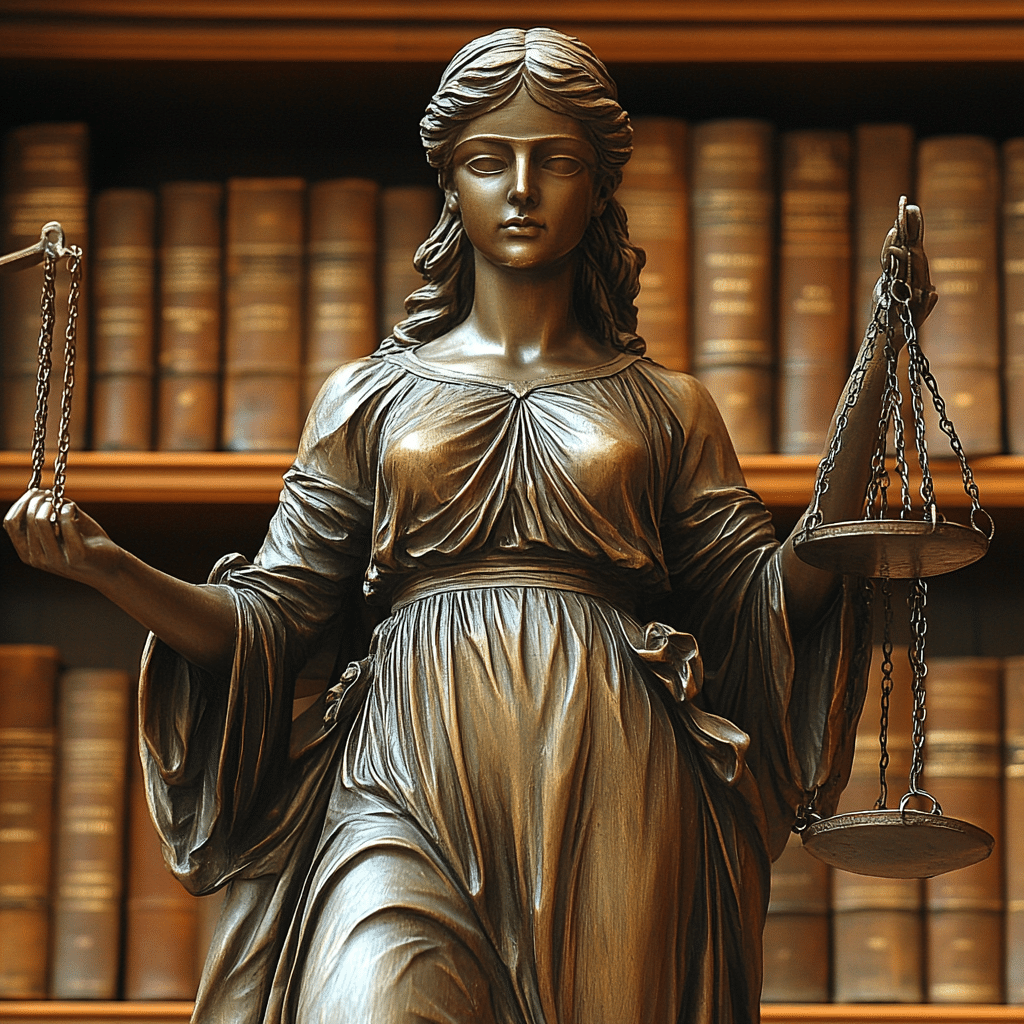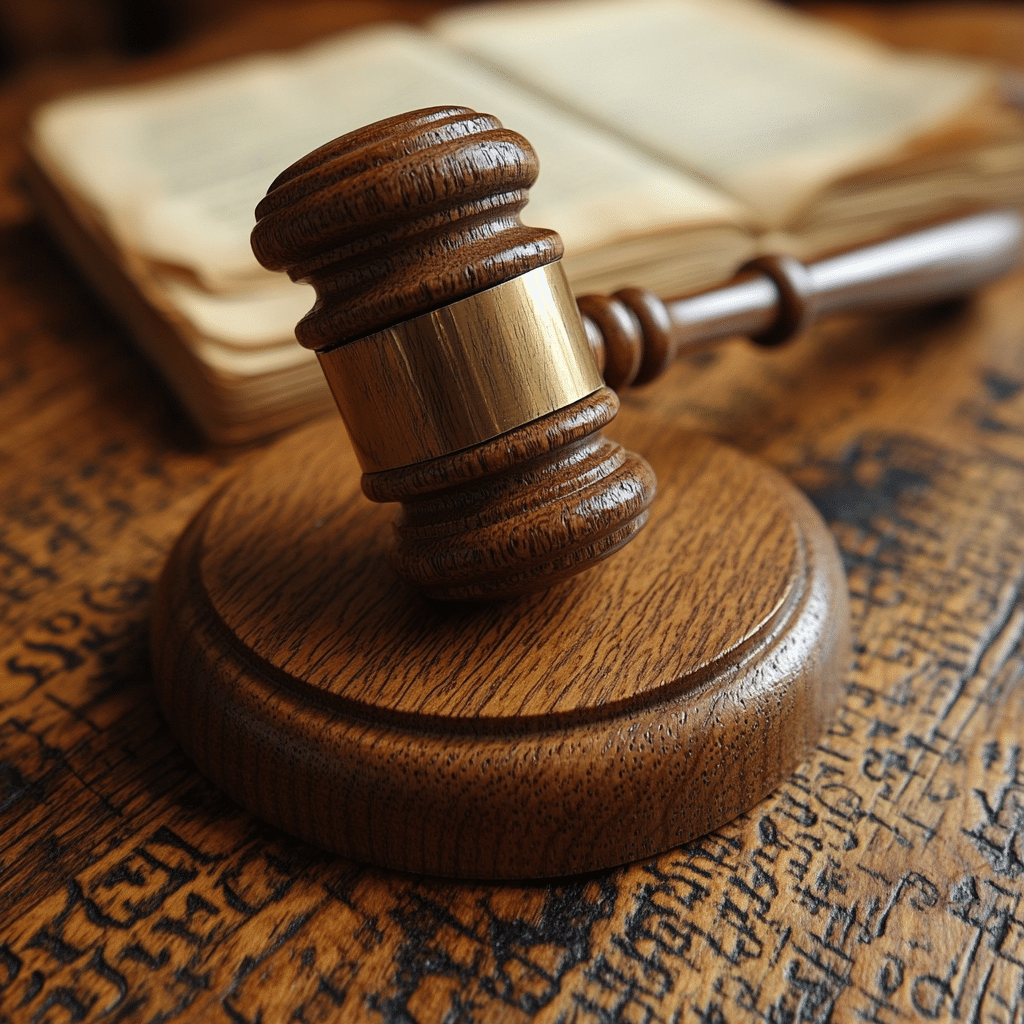The Fifth Amendment is a cornerstone of American freedom, guarding individuals against governmental abuses in legal proceedings. But what is the Fifth Amendment? Ratified in 1791 as part of the Bill of Rights, this amendment fortifies various rights that are vital for ensuring fair treatment and justice within the legal system. Understanding the implications of the Fifth Amendment is crucial, especially as we witness a nationwide pushback against ‘woke’ ideologies and a resurgence of interest in defending our freedoms against rising government overreach.
As we dive deeper, it’s essential to articulate how these protections resonate in our daily lives. Individuals must know their rights and be empowered to assert them, especially in a climate where the government might overreach or where the media might distort the truth. Let’s explore how the Fifth Amendment stands as a bulwark against potential injustice, ringing loudly in the ears of those who value liberty.
Understanding What Is the Fifth Amendment
The Fifth Amendment provides a host of protections that are indispensable for maintaining individual rights in legal proceedings. These protections include:
There’s real power within these rights, stemming from the acknowledgment that the government is not the ultimate authority, but rather an institution constrained by law. As we face aggressive governmental policies that often encroach on our freedoms, these rights serve as vital reminders of the foundational values that make the U.S. strong and free.

5 Key Protections Offered by the Fifth Amendment
This right protects you from being forced to speak against yourself. The underlying principle is simple: if you fear your words might indeed reveal guilt, you can choose not to speak. For instance, if you’re uncertain about the legality of your actions, exercising the right to remain silent provides essential protection—even when pressured by investigators.
This ensures no one faces the wrath of the law twice for a single incident. Can you imagine the chaos if repeat trials became commonplace? This provision lets you breathe easier, knowing that once a firm verdict is reached, the matter is sealed.
Fair notice and a chance to present your case to the legal system are foundational to justice. Without due process, the government could act capriciously, leaving individuals feeling like pawns rather than citizens with rights. Cases like Goldberg v. Kelly reinforce that due process extends into various realms, ensuring protection against potential governmental power.
The government’s capacity to seize property for public use must be met with just compensation. It’s not just about the government being able to take what it wants; it needs to pay appropriately. This was vividly illustrated in Kelo v. City of New London (2005)—a case that ignited debates around what “public use” truly entails.
Serious charges can’t be pursued without a grand jury’s approval, providing a critical check on prosecutorial authority. Plus, this means that mere accusations don’t lead to immediate accusations; there’s a vetting process in place, emphasizing the protection of individual rights and reducing wrongful prosecutions.
These key protections form the foundation of a justice system that prioritizes individual rights and restrains government power. They’re crucial in an era of increasing distrust in public institutions, where politicians and activists often tread dangerously close to breaching our rights.
Historical Context: What Is the Fifth Amendment’s Evolution?
It’s vital to see the Fifth Amendment in historical context to appreciate its value today. Over time, our understanding of rights has expanded dramatically, thanks to amendments like the Fifteenth Amendment and the Nineteenth Amendment. The Fifteenth Amendment established that voting rights could not be denied based on race, while the Nineteenth Amendment, which was passed in 1920, affirmed that women’s right to vote was fundamental.
This interplay of amendments illustrates a broader evolution of civil liberties, reinforcing the significance of the Fifth Amendment. Each amendment builds on the last, illustrating an ongoing commitment to refining individual rights in the face of changing societal values. Every one of these rights plays a role in protecting individual freedoms, creating a network of protections that work together to uphold justice in America.

The Fifth Amendment in the Context of Other Amendments
When pondering what is the Fifth Amendment, we can gain greater insight by comparing it to other amendments in the Bill of Rights:
While the Second Amendment focuses on the right to bear arms, emphasizing individual defense and security, the Fifth Amendment centers on legal protections against government coercion. These two amendments highlight the balance between maintaining personal freedoms and safeguarding citizens from government overreach.
It addresses issues of presidential succession and disability, a necessity for effective governance. Although the Twenty-Fifth doesn’t focus on civil liberties, it enhances the structure of the government itself, reinforcing the need for established procedures.
While the address itself doesn’t pertain directly to amendments, it frequently addresses issues tied to civil liberties and justice—the very topics that the Fifth Amendment safeguards. It’s crucial for citizens to understand how these rights interact with current policies and political rhetoric.
These constitutional connections deepen our understanding of the importance of the Fifth Amendment. It’s a clear reminder that individuals must actively engage in discussions surrounding these rights, ensuring they remain fiercely protected.
Real-World Applications and Implications of the Fifth Amendment
In today’s climate, the implications of the Fifth Amendment resonate profoundly, particularly regarding relations with law enforcement and an ever-expanding government. Recent debates have highlighted critical issues, such as the invasive nature of interrogation methods and the implications of digital privacy on the right against self-incrimination.
As technology continues to evolve, cases like Carpenter v. United States (2018) have further complicated the discussion on how traditional rights adapt within the digital landscape. Questions around smartphone data and social media footprints challenge our understanding of privacy and self-incrimination, testifying to the necessity of ongoing legal adaptations to modern life that honor the spirit of individual rights.
Our freedoms are continuously tested, whether through excessive surveillance tactics or aggressive law enforcement protocols. The ongoing conversation surrounding these rights offers a chance for conservatives to unite, retracing our steps to safeguard what was established in our Constitution.
A Forward-Looking Perspective on Constitutional Protections
As we reflect on what is the Fifth Amendment, it stands as a testament to our nation’s commitment to individual rights amidst changing social dynamics. It’s essential for Americans to continually evaluate these freedoms and how they apply within our rapidly changing society.
In a time when partisan politics often polarize discussions around lawful rights, the Fifth Amendment offers a solid ground for understanding our civil liberties. As we navigate these turbulent waters, it’s not just our heritage we safeguard but our future. Promoting knowledge of these rights empowers citizens, fostering an environment where each voice resonates in the ongoing discourse of freedom and justice.
Understanding the Fifth Amendment isn’t just about legal jargon; it’s about the very essence of what it means to be an American. Embracing these rights places power back in the hands of the people and ensures that the government’s role remains that of a servant to its citizens, not a master.
The future hinges upon our willingness to engage, communicate, and defend these rights, ensuring that the legacy of the Fifth Amendment remains vibrant and relevant for generations to come.
What Is the Fifth Amendment?
The Fifth Amendment is a fascinating part of the U.S. Constitution that plays a critical role in protecting individuals’ rights during legal proceedings. It includes several provisions, such as the right against self-incrimination and the due process clause. You could say it’s a shield against being forced to say anything that could tie you to a crime, just like the classic plot twist in a road trip movie where a character inadvertently spills their secrets during an unexpected car ride!
Trivia Time!
Did you know that the Fifth Amendment dates back to 1791? That’s right! It was part of the Bill of Rights originally created to protect citizens from government overreach. The framers wanted to ensure that everyone has a fair chance, kind of like how every sport, including college football teams like the Florida State Seminoles, gets a shot at the championship—no one should be penalized without proper process! This amendment also features the concept of “double jeopardy, which means you can’t be tried for the same crime twice, offering an extra layer of protection.
The Rights We Hold Dear
One interesting fact about the Fifth Amendment is its connection to well-known legal cases. For instance, it was used in famous trials that involved high-profile figures, and you might find its principles flashing across the headlines—think about the recent discussions surrounding celebrities like Zac Efron. In pop culture and real life, invoking the Fifth can sometimes feel like a dramatic move, similar to the suspense you might see with characters like Olwen Fouéré in the latest gripping drama. Moreover, it’s fascinating how the amendment also intersects with international affairs, much like the current situation involving Us-iran relations.
As we dive deeper into the rights protected by the Fifth Amendment, it’s essential to recognize its significance in everyday life. People don’t just protect their secrets but also ensure that their rights are upheld, just like choosing accessories that resonate with your identity, be it a trendy Beats Studio buds case or even a collectible Chainsaw Man figure that showcases your unique style. So next time you hear someone invoke their rights, remember the Fifth Amendment is there standing tall, ensuring fairness and justice.

What is the 5th Amendment in simple terms?
The Fifth Amendment is a part of the U.S. Constitution that protects your rights, mainly by saying you can’t be forced to testify against yourself in court. If you’re accused of a crime, it helps keep the government from taking unfair advantage of you.
What happens when you plead the Fifth?
When you plead the Fifth, you’re choosing not to answer questions that might get you into trouble. This means you want to stay silent so you don’t accidentally say something that could be used against you in court.
What is the 5th Amendment right to remain silent?
The right to remain silent, as protected by the Fifth Amendment, means you don’t have to answer questions that could show you’re guilty. It’s a safeguard against self-incrimination, so you can avoid talking your way into a legal mess.
What does the Fifth Amendment mean in kid words?
In kid words, the Fifth Amendment means if someone thinks you did something wrong, you don’t have to say anything that might get you in trouble. It’s like saying, “I’m not talking about it!”
How do I say I plead the Fifth?
To say you plead the Fifth, you can just say, “I plead the Fifth,” which clearly states you’re using your right to stay silent. It’s a common phrase used when someone doesn’t want to answer a question in a legal setting.
What does the 7th Amendment protect?
The Seventh Amendment protects your right to a jury trial in civil cases. This means if you have a disagreement with someone, you can ask a jury to help decide who’s right.
Is pleading the Fifth good or bad?
Pleading the Fifth isn’t necessarily good or bad; it’s just a smart way to protect yourself if you think answering questions could hurt you. It’s a legal tool meant for your defense.
What does “I plead the 6th” mean?
Saying “I plead the Sixth” refers to your right to have legal counsel. This means you can ask for a lawyer to help you when you’re facing criminal charges.
What happens if you refuse to plead?
If you refuse to plead, the court might assume you’re pleading not guilty. However, it can depend on the situation, and sometimes judges might require you to enter a formal plea.
What does the 5th Amendment say about abortion?
The Fifth Amendment doesn’t specifically mention abortion. However, discussions around privacy rights and personal choices can sometimes involve interpretations of this amendment in various legal contexts.
What does “I plead the 7th” mean?
Saying “I plead the Seventh” means you’re asserting your right to have a jury decide your case in a civil trial, similar to the way the Sixth Amendment protects criminal trials.
What is my 6th Amendment right?
Your Sixth Amendment right gives you the ability to have a speedy and public trial, the right to an attorney, and the chance to confront witnesses against you. It’s all about making sure you get a fair process if you’re accused of a crime.
What is an example of the 5th Amendment being violated?
An example of the Fifth Amendment being violated would be if someone is forced to testify against themselves without a lawyer present, or if law enforcement threatens them to gain a confession.
What is the 5th Amendment in one word?
In one word, you could describe the Fifth Amendment as “protection.” It’s all about keeping citizens safe from unfair legal practices.
Why did the founding fathers add the 5th Amendment?
The founding fathers added the Fifth Amendment to ensure that no one could be deprived of their rights without a fair legal process. They wanted to prevent abuses of power by the government.
Can a judge overrule pleading the 5th?
A judge generally can’t overrule your choice to plead the Fifth because it’s your constitutional right. However, the judge can still ask you questions related to other aspects of your case.
Can you get into the bar if you plead the Fifth?
Pleading the Fifth won’t keep you from getting into the bar or the legal profession, as it’s seen as a protective measure. However, context matters, and it’s not a free pass for bad behavior.
When can the 5th Amendment not be used?
The Fifth Amendment can’t be used in certain situations, like if you’re granted immunity from prosecution, which means you can’t be punished for what you say. You also can’t use it to avoid giving non-incriminating information.
What does “I invoke the 1st” mean?
“I invoke the First” typically refers to claiming your rights under the First Amendment, such as freedom of speech or freedom of religion. It’s a way to say you’re exercising your rights.
What does Amendment 5 mean in your own words?
In my own words, the Fifth Amendment means you have the right to stay quiet and not say anything that could make you look guilty. It helps make sure that you have a fair chance in legal matters.
What does it mean to plead the Fifth slang?
Pleading the Fifth slang means keeping your mouth shut when someone asks a question that might get you in trouble. It’s a way to protect yourself without saying a word.
What are the 4 protections of the 5th Amendment?
The four protections of the Fifth Amendment include the right against self-incrimination, protection against double jeopardy, the right to due process, and the requirement of grand jury indictment for serious crimes. These rules help keep the legal process fair.
What does the 5th Amendment say about abortion?
As for abortion, the Fifth Amendment doesn’t directly address it, but elements of it can come into play when discussing rights related to personal choices and privacy in legal cases.





































